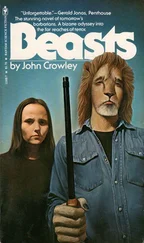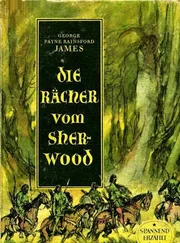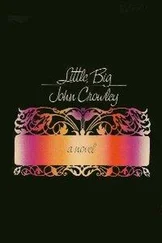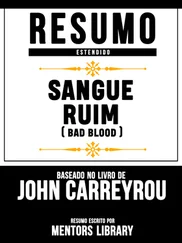“And what you always want to do, Lucinda? Me no forget how you did hungry for me man, y’know. Look like you get what you want.”
“How anybody could a want that? What you is? A woman or a monster wearing blue dress?”
“Then, then how come you just come to your sense and nobody else?”
“Cause nobody else see what me see in him bedroom. And nobody else goin get kill before anybody find out. He probably call The Five already.”
“So you come here cause one of them drop dead when him try cross me lawn. You think that goin save you?”
“No, Pastor Bligh goin save me.”
“Listen to you, bout Pastor Bligh. What make you think Pastor Bligh can save anybody?”
“Then him no must! Me no know, but for some reason the Apostle fraid o him like puss. Him don’t even want nobody to call the Pastor name.”
“Bligh can’t even save himself, much less anybody.”
For once all hysterics left Lucinda. Her face was grave, with only hiccups betraying the panic that was still in her. “God goin work through him, me know.”
The Widow had nothing to say. This was what even she had hoped for, that all his madness should make some bigger sense. Something greater than what she could fathom. But she could never admit this, not to herself and certainly not to Lucinda, whom she now felt compelled to call by her first name.
“You hungry?”
“No.”
“You want something to dri—”
“You think him sleeping?”
“I … Wait here.”
She had spent too much time outside his door. The Widow had fed him pens, pencils, chalk, and charcoal. Would he have pricked himself and written in blood? The Widow would rather not answer. He was mad as raas. And yet she knew Jesus was working through him. He had to be. This madness must make bigger sense. Everything that was not of the Lord fell dead at her gate. That had to be him — Bligh, not the Lord. He had drawn a line in the spirit around her house. It did not make her feel safe or protected, only secure in the knowledge of death. The Widow raised her hand to knock, but he had already opened the door.
She had fooled herself; of course her heart could sink lower. The room stank with the air of the old. She thought that if Mr. Greenfield had died here, this is what the room would have smelt like. The little she saw of the writing she could not understand. A frenzied scrawl of words and marks, some running into each other. He had written on his chest as well, a parade of symbols that made no sense. Bligh scratched his nose and she saw his fingers, the tips blackened with ink and coal. His hair seemed to be whiter. He was shirtless.
“Lucinda … she …”
He looked right, left, then straight at her.
“Lucinda … she want you. She saying some things bout the Apostle. She—”
He stepped back and closed the door. The Widow was unsure what to feel. Better to give up on all feeling and have a good night’s sleep. Better peace than understanding. Tonight anyway. Him can turn a mad raas, for all I care. But she was wearing blue because of him. She could admit this now. No, her own mind countered, better to turn away. Better to have peace, because peace was nothing. Nothing was the only thing you could cut by half and still have too much. But as she turned away, he opened the door again. He was fully dressed in his white suit, which was covered with words, scrawls, and shapes. He seemed older, but also taller; the words reached upwards, climbing toward his head. Standing straight and firm, he said things without speaking.
“Oh bless God! Oh praise Jesus! Oh praise the Lord!” said Lucinda.
Bligh stood still, staring at Lucinda as seconds grew pregnant and both women grew tense. Lucinda looked away and began to fidget. The Widow found the broom in the corner of the room. She feigned to sweep but released it to fall back into the corner. Lucinda sat down again, her fingers mid-fidget.
“So,” the Widow and the sister said at once.
“So what you goin do?” Lucinda blurted out quickly. “You hear what him doin? Nastiness, I tell you is pure nast—”
“You see him doing nastiness?” His stare could cut through iniquity like a thin blade of judgment and get to truth. Too much for Lucinda, who preferred truth that pointed no finger at her.
“Ah … well, sexing. Me see them sexing!”
“How?”
“What?” the Widow said.
“What you mean?” said Lucinda.
“How. How were they sexing?”
“Like how man and woman sexing. Nasty nastiness.”
“Tell me.”
“Really, Hector, nobody have to tell anybody—” started the Widow.
“The Apostle bend over pon the vanity and Clarence behind him a ram him like man dog.”
“You’re lying,” said Pastor Bligh.
“No! Look how Clarence beat me. Them is sodomite!”
“True. But you didn’t see it.”
“Me hear it.”
“No. You didn’t hear it either.”
“Well, Clarence over him house night and day. What that suppose to mean?” She looked at him, hungry for an answer. “So, so what you goin do? You goin kill him?”
“You mad?” the Widow shouted. She had expected the Pastor’s rebuke to be stronger. That he would kick her blinkin backside out of the house with the boot of the Holy Spirit. But he said nothing, and neither did Lucinda. Her outburst was left hanging, staining the quiet like an unwanted intrusion.
“Eeh? Eeh, Pastor? You no see say the Devil come to steal, kill, and destroy? Him rob you job and kill Massa Fergie and him doing nastiness with man. Oh Lord Jesus, what him goin do when him find out say me is here?”
“Thou shalt not kill,” the Widow said feebly as she turned to walk away. But then she remembered that this was her house and nobody was going to make her feel uncomfortable. She sat at the dining table eyeing Lucinda hard.
“So you goin—”
“Enough.” He turned his back to them and stooped down. Sometimes he would close his eyes and whisper. The Widow thought it was a prayer for things he had forgotten to say before. He did this until morning came.
Lucinda woke up first. She looked down and saw Pastor Bligh fully prostrate, his white suit covered in marks that she recognized from the Apostle’s books. The Widow slept in the chair, her chin resting on her chest as she snored.
Lucinda stepped over the Pastor and tiptoed down the hallway. She passed the kitchen and a closed bedroom, afraid that she would wake up the Widow but excited by the same. She continued down the hall, stopping at the only room with the door open. She knew this was where the Pastor slept. Or whatever he did at night. But the Pastor had stopped sleeping. There was God’s work to do. Her surprise quickly gave way to a curiosity as deep as her lusts.
The words scribbled on the walls stirred her. Some she could recognize; names such as Daniel, James, and John. There were words that she could not pronounce. They seemed to dance and swirl from floor to ceiling, even the ones that were jagged and mad. There were numbers as well. Sixes and sevens and groups and signs. Triangles and eyes. A goat’s head. Stars and crosses and the smudge of ideas aborted and erased. The words broke distinction between floor and wall, wall and ceiling. At any minute they would leap from their surfaces and attack her. They would swirl and twirl and wrap themselves around her neck.
She turned around and he was there. At that second she remembered her nose swimming in the hair of another man’s chest and the whip slashing her back to set her straight.
“It’s time,” Bligh said. The Widow was still asleep.
“Everybody stop work, you know. Him tell everybody who go out o village to stop work. Him say everything we want, God will provide. All we need to do is stretch it. Everybody chicken must now go in one coop.”
Читать дальше












